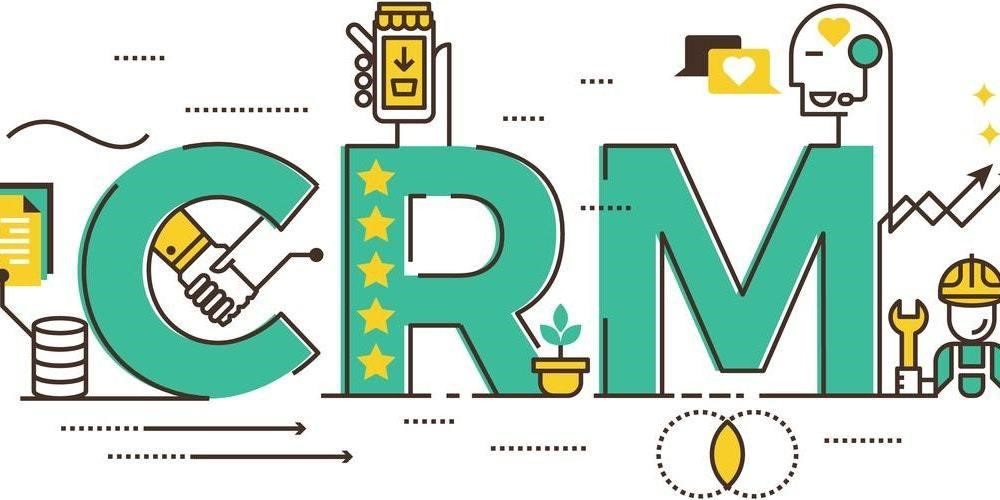Jun 14, 2019
What is the best time to use a CRM in a business?
What is the best time to use a CRM in a business?
What is the best time to use a CRM in a business?



There is no perfect moment for a business to implement a CRM in its organization. However, there are very clear indicators that can guide us in knowing if the timing is right. When a business has reached the point of using a CRM, like Pipedrive for example, it is often when it has achieved a certain maturity and stability…except for one exception!

Using a CRM in a start-up
Start-ups should absolutely budget for the implementation of a CRM at the beginning of their operations. It is at this time that the investment in implementing a CRM becomes highly profitable and is the cheapest. Since a CRM provides numerous advantages (like setting goals, measuring sales results, automating billing, centralizing information, etc.), the positive impact of implementing the CRM at the very start is incredible.
Let’s view the CRM as a large library with each customer file as a book. This library is accessible to everyone, at any time, with certain VIP access. Now, imagine that every time you have a new prospect, you add a new book to your library. Each time there are changes to be made in the customer file, you add a page to that book. Over time, you create a highly efficient filing system.
Now, let’s imagine a scenario that is the opposite. After 3 years in business, you have amassed a ton of information about your prospects and clients in several different software and locations…sort of like having in front of you a huge pile of several thousand books that you now need to organize in a library, create a filing system, etc.

Which of the two methods seems more effective and more profitable to you?
The first one, obviously!
The best time to use a CRM in your business will always be as soon as possible, but reality often makes it so that we postpone this moment.
Since implementing a CRM requires time and resources, many businesses delay this step, which is, today, essential. This impacts increasing the cost and time necessary to take the digital turn.
Using a CRM in a mature business
The main advantage of implementing a CRM in a mature business? It often knows its processes very well, the “pitfalls”, the snags, etc. Moreover, a business with several years of experience can rely on key employees, also known as power users, who can be trained on the system to, in turn, help other departments be integrated into the complete system. Let’s take the example of a mature company in the construction field:
The team
1 President
1 Coordinator
1 Receptionist
4 Foremen
3 Salespeople
20 Carpenters
The power users could be:
The president (obviously)
The coordinator
A salesperson
A foreman
Having this type of method to implement a CRM when the business is mature allows for a smoother process and ensures that all departments are at the same level. However, it is important to ensure that power users are somewhat comfortable with technology and are able to explain to their colleagues how to use the new CRM effectively.
The time required to implement a CRM when the business is mature will mainly depend on the complexity of the tools necessary for the proper functioning of the CRM as well as its processes.
Attention: If your business is experiencing very rapid growth at the time you wish to use a CRM, it is advisable to put the brakes on sales first or to proceed with "pilot projects".
A pilot project would involve implementing the CRM only in one department, ensuring effective use in that department of the CRM, and then later spreading the implementation to the rest of the company.
This method takes more time but is essential in a rapidly growing business.
The danger of implementing a CRM at the wrong time
As I mentioned earlier, the danger is to implement a CRM when the business is in rapid growth, but it is still possible. The success of the implementation will always be achieved through rigorous planning and, above all, the patience to take the necessary time to do things correctly!
There is no perfect moment for a business to implement a CRM in its organization. However, there are very clear indicators that can guide us in knowing if the timing is right. When a business has reached the point of using a CRM, like Pipedrive for example, it is often when it has achieved a certain maturity and stability…except for one exception!

Using a CRM in a start-up
Start-ups should absolutely budget for the implementation of a CRM at the beginning of their operations. It is at this time that the investment in implementing a CRM becomes highly profitable and is the cheapest. Since a CRM provides numerous advantages (like setting goals, measuring sales results, automating billing, centralizing information, etc.), the positive impact of implementing the CRM at the very start is incredible.
Let’s view the CRM as a large library with each customer file as a book. This library is accessible to everyone, at any time, with certain VIP access. Now, imagine that every time you have a new prospect, you add a new book to your library. Each time there are changes to be made in the customer file, you add a page to that book. Over time, you create a highly efficient filing system.
Now, let’s imagine a scenario that is the opposite. After 3 years in business, you have amassed a ton of information about your prospects and clients in several different software and locations…sort of like having in front of you a huge pile of several thousand books that you now need to organize in a library, create a filing system, etc.

Which of the two methods seems more effective and more profitable to you?
The first one, obviously!
The best time to use a CRM in your business will always be as soon as possible, but reality often makes it so that we postpone this moment.
Since implementing a CRM requires time and resources, many businesses delay this step, which is, today, essential. This impacts increasing the cost and time necessary to take the digital turn.
Using a CRM in a mature business
The main advantage of implementing a CRM in a mature business? It often knows its processes very well, the “pitfalls”, the snags, etc. Moreover, a business with several years of experience can rely on key employees, also known as power users, who can be trained on the system to, in turn, help other departments be integrated into the complete system. Let’s take the example of a mature company in the construction field:
The team
1 President
1 Coordinator
1 Receptionist
4 Foremen
3 Salespeople
20 Carpenters
The power users could be:
The president (obviously)
The coordinator
A salesperson
A foreman
Having this type of method to implement a CRM when the business is mature allows for a smoother process and ensures that all departments are at the same level. However, it is important to ensure that power users are somewhat comfortable with technology and are able to explain to their colleagues how to use the new CRM effectively.
The time required to implement a CRM when the business is mature will mainly depend on the complexity of the tools necessary for the proper functioning of the CRM as well as its processes.
Attention: If your business is experiencing very rapid growth at the time you wish to use a CRM, it is advisable to put the brakes on sales first or to proceed with "pilot projects".
A pilot project would involve implementing the CRM only in one department, ensuring effective use in that department of the CRM, and then later spreading the implementation to the rest of the company.
This method takes more time but is essential in a rapidly growing business.
The danger of implementing a CRM at the wrong time
As I mentioned earlier, the danger is to implement a CRM when the business is in rapid growth, but it is still possible. The success of the implementation will always be achieved through rigorous planning and, above all, the patience to take the necessary time to do things correctly!
#Technology, Powered by Gro!
Gro Agency 2025 - All rights reserved
#Technology, Powered by Gro!
Gro Agency 2025 - All rights reserved
#Technology, Powered by Gro!
Gro Agency 2025 - All rights reserved